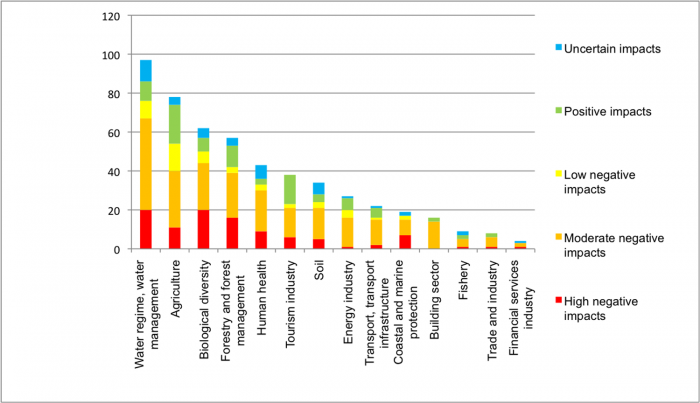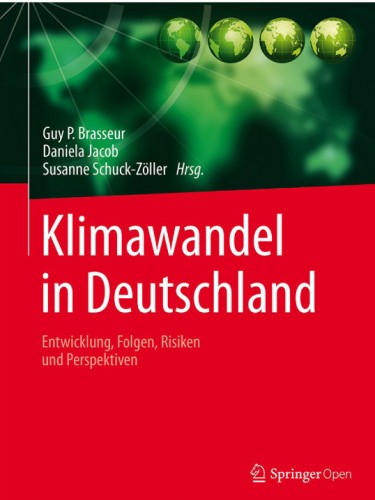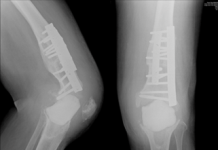The Climate Service Center Germany (GERICS), together with the international publisher Springer, recently published a new scientific assessment comprising the first ever collection and synthesis of all existing information about climate change in Germany. Thus the 5th IPCC Assessment Report is broken down to the national scale, enriched by additional information from “grey” literature, case studies and the authors’ own scientific findings. The German language book “Klimawandel in Deutschland”, edited by Guy Brasseur, Daniela Jacob and Susanne Schuck-Zöller is meant to present state-of-the-art scientific knowledge in terms of the expressions of climate change, its impacts, deriving risks and adaptation options. The main chapter is dedicated to impacts in different natural spaces and single economic sectors.
One of the main findings is: Even a global warming of up to 2°Celsius will affect all natural spaces, all geographic regions and all economic sectors in Germany. This means that all areas of life will feel the impacts and everybody in society will experience some kind of related consequences, and so must be prepared.

Guy Brasseur had initiated the project in his former role as Director of GERICS. He explains: “There will be a large number of challenges resulting from climate change even for Germany. Though they might be limited in size and therefore manageable on the first sight, we should not rule out the existence of feedback-loops that may exacerbate the effects. We need therefore integrative measures that reflect the systemic nature of the Earth system. And these measures, which require trans-disciplinary approaches must be urgently generated if we want to keep the negative consequences of climate change as small as possible.”
“From the water budget, to the energy sector, and the construction industry, all economic sectors and aspects of life are affected by climate change in Germany”, Daniela Jacob, present director of GERICS, adds. “Cascade effects, which often take place across different sectors, need to be tackled, and this demands a systemic approach.”
The target audience of the assessment are decision makers from politics, economy, business and administration. It delivers all basic information in a compact, readable form and thus helps with decision making across all levels of society. The editors found 11 renowned scientists from important climate change research institutions in Germany to join the Editorial Board. The diversity of views is assured by a broad range of 126 authors from all over the country that represent a great variety of disciplines and methodologies.
Guy Brasseur, Daniela Jacob, Susanne Schuck-Zöller (Eds.): Klimawandel in Deutschland. Entwicklung, Folgen, Risiken und Perspektiven
350 pages, more than 100 coloured figures,
Book (Softcover), E-Book (Open Access), Enhanced E-Book (upcoming)
Springer Verlag, Heidelberg, Berlin 2017
DOI 10.1007./978-3-662-50397-3









